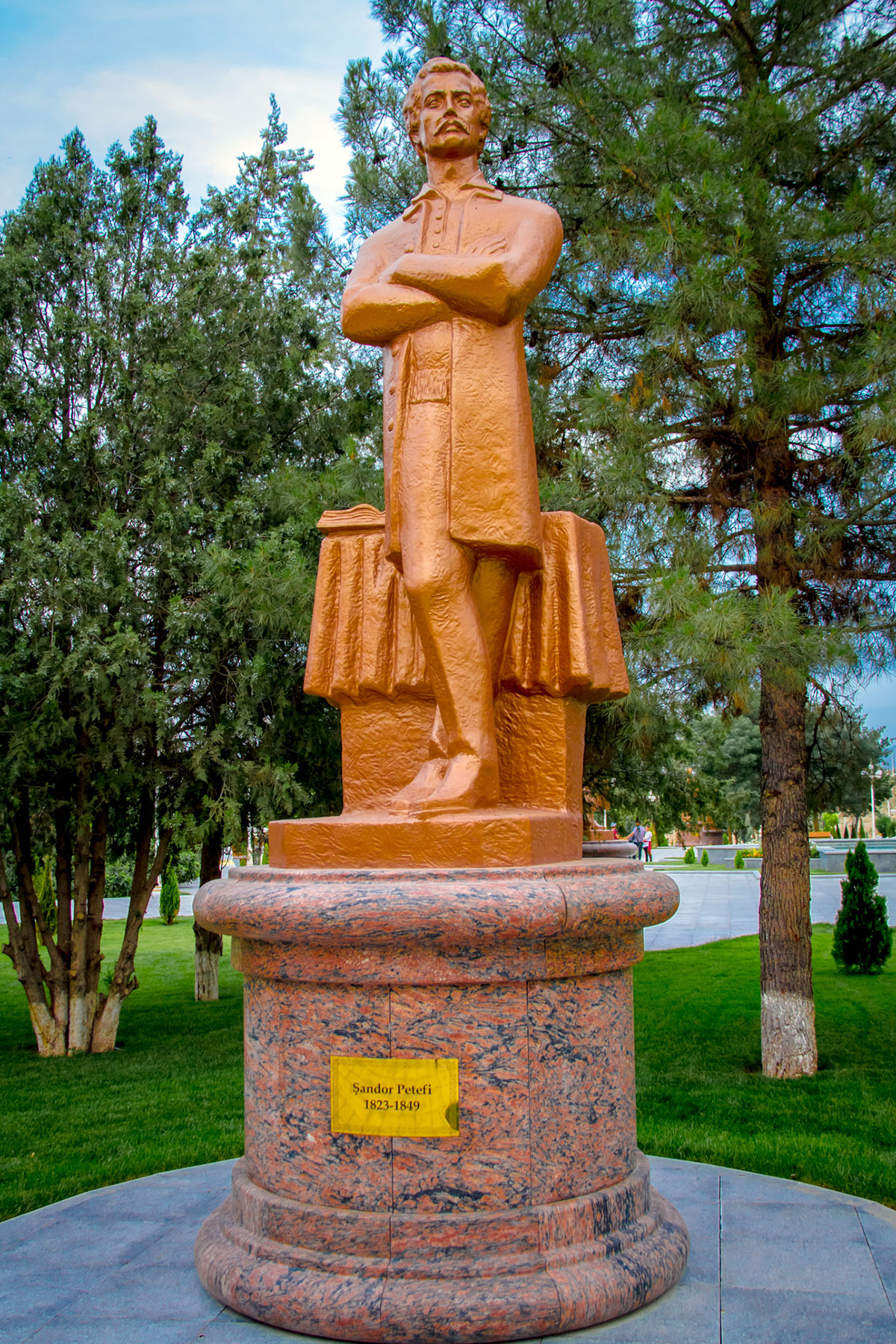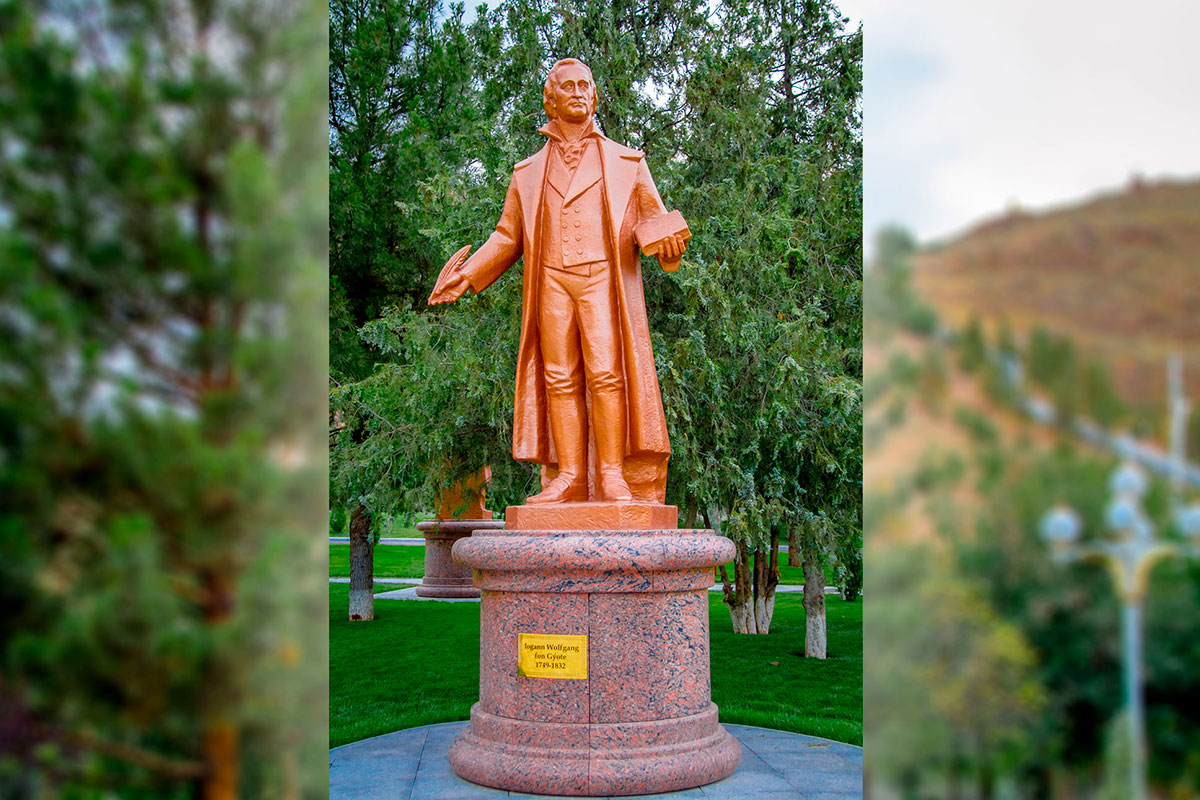This year, in a solemn ceremony to mark the 300th anniversary of the birth of the classic of Turkmen literature Makhtumkuli Fragi and a new cultural and park complex of the capital was opened in his honor in the foothills of Kopetdag. It is symbolic that this large-scale object, in addition to the majestic monument to Makhtumkuli, includes an alley of famous poets and thinkers from various countries and eras, which underlines its importance in the context of friendship of peoples and the unity of the cultural heritage of mankind. There are 24 monuments on the territory of the park complex. World-famous writers and poets from around the world.
The editors of the Golden Age considered it right, if possible, to acquaint the reader, especially children and youth, with the life and work of outstanding personalities whose monuments adorn Makhtumkuli Alley. This is also important because some of the geniuses of their time represented here have visited Turkmenistan. By publishing information about them, SV does not pretend to provide complete coverage of materials about a particular person, especially since many of them have been reported for a long time, not much information has been preserved. Our short story today is about the classic of Hungarian literature, the prominent Hungarian national poet Sandor Petefi.
Sandor Petefi was born in 1823, in the small Hungarian town of Kish-Keresh. From an early age, the poet had to experience severe material hardships. Sixteen years old young men who did not graduate from the gymnasium due to lack of funds, Petefi leaves his parents' house to start an independent life.
For some time, Petefi was an actor in a traveling troupe, financial need forced him to enlist in soldiers. The years of service were among the most difficult periods of Petefi's life. However, he was soon discharged due to illness. Wandering around the country and years of struggle for existence begin. During his years of wandering in Hungary, Petefi became intimately acquainted with the nature of his Homeland, with the life and sufferings of the people.
In 1844, the first collection of Petefi's poems was published, which immediately brought him universal recognition and wide fame. Written in a simple folk language, similar in rhythm and rhyme to folk songs, Petefi's poems were perceived as Hungarian folk songs.
During the years of his short but intense literary activity, Petefi wrote about thousands of poems, several poems. He wrote a number of short stories, plays, essays, and diaries.
In his famous poems, the ironic "Village Hammer" and the fabulous "Knight Janos", Petefi completely departs from the generally accepted conservative pseudo-romantic canons.
The "Knight Janos", based on folklore material, is characterized by both folk content and a folk form close to the legends.
A book of poems and poems by Sandor Petefi was published in Turkmenistan in 1955, and his book "Janos the Strong Man" was published in Ashgabat in 1956. Even today, Turkmen readers read the poet's works with great enthusiasm.
The poet and national hero of the Hungarian people died during the Battle of Szegesvar in Transylvania in 1849. The importance of Petefi's work for the Hungarian people cannot be overestimated.
He is the national poet of Hungary, and his role as the founder of poetry in the national language corresponds to the importance of Pushkin for Russian, Shevchenko for Ukrainian, Yanka Kupala for Belarusian literature, Mickiewicz for Polish literature.
Squares, streets, educational institutions, museums and libraries are named after the great poet. Minor planet No. 4483, discovered in 1986, is named after Petefi.







